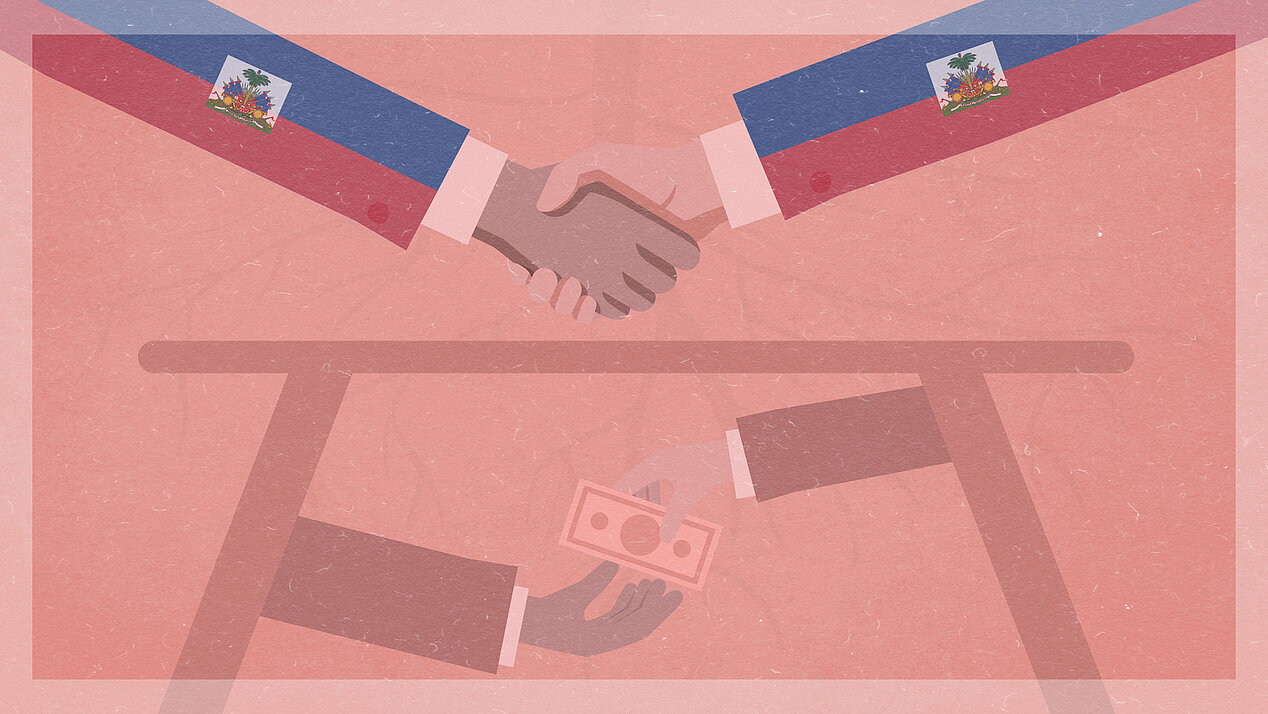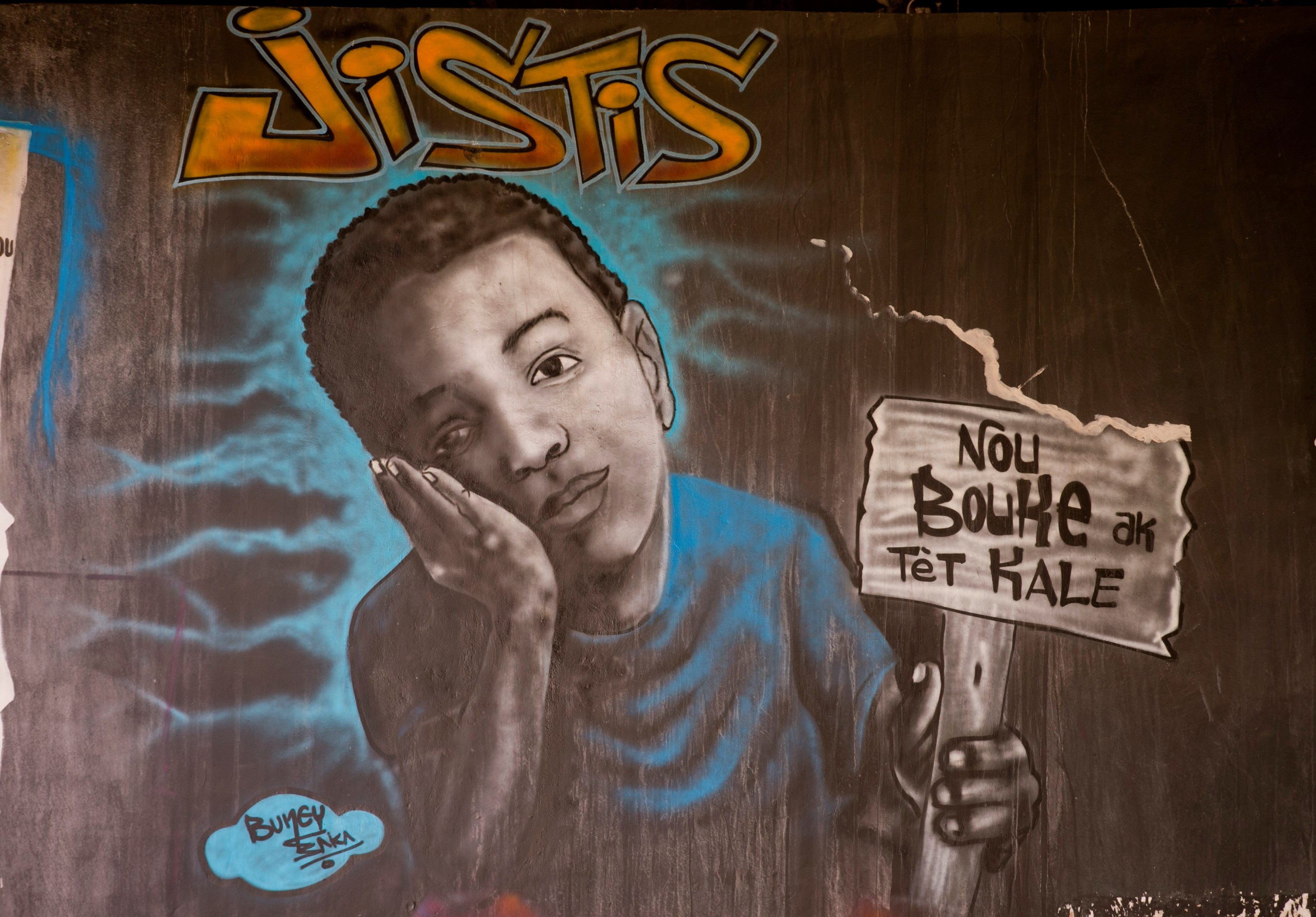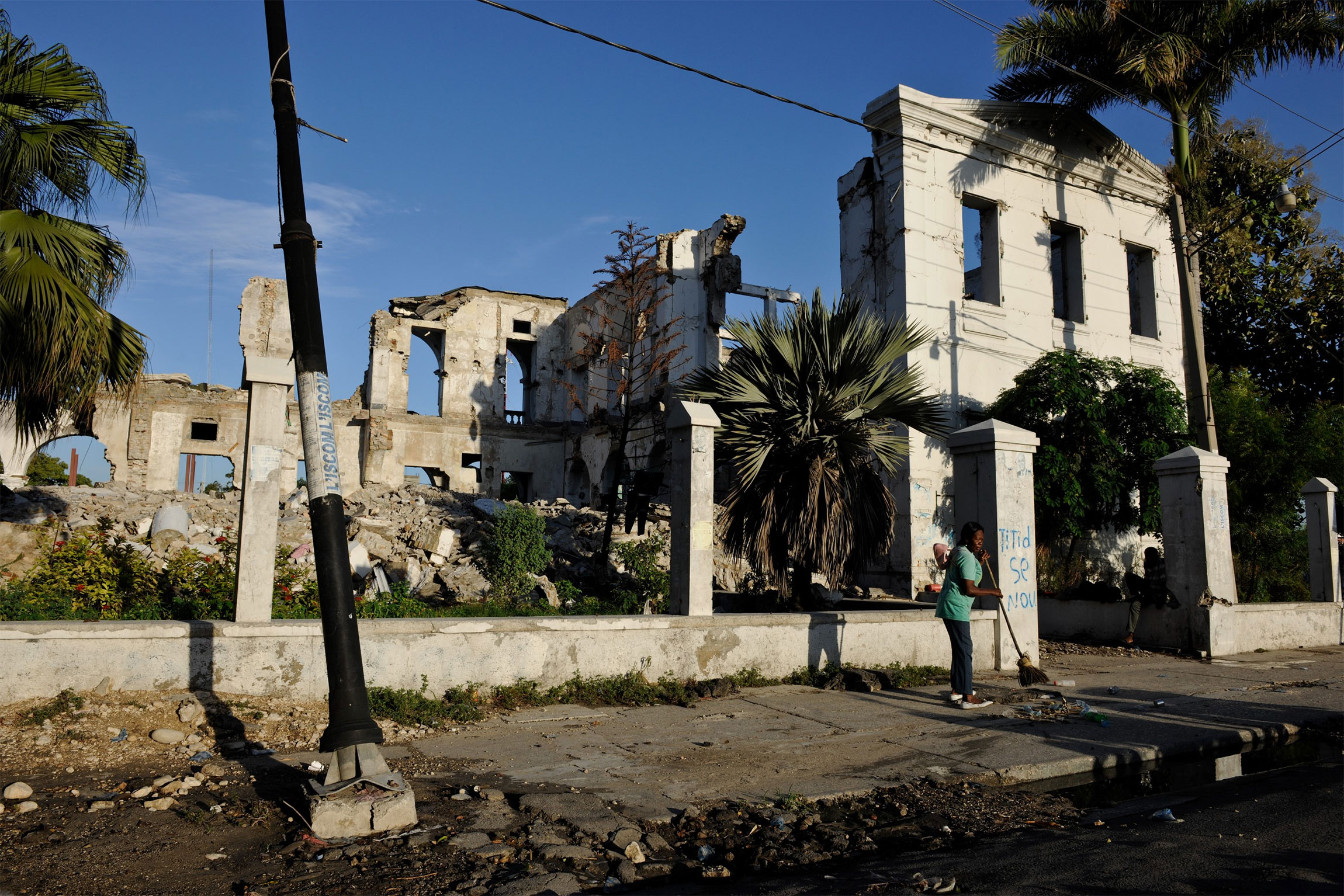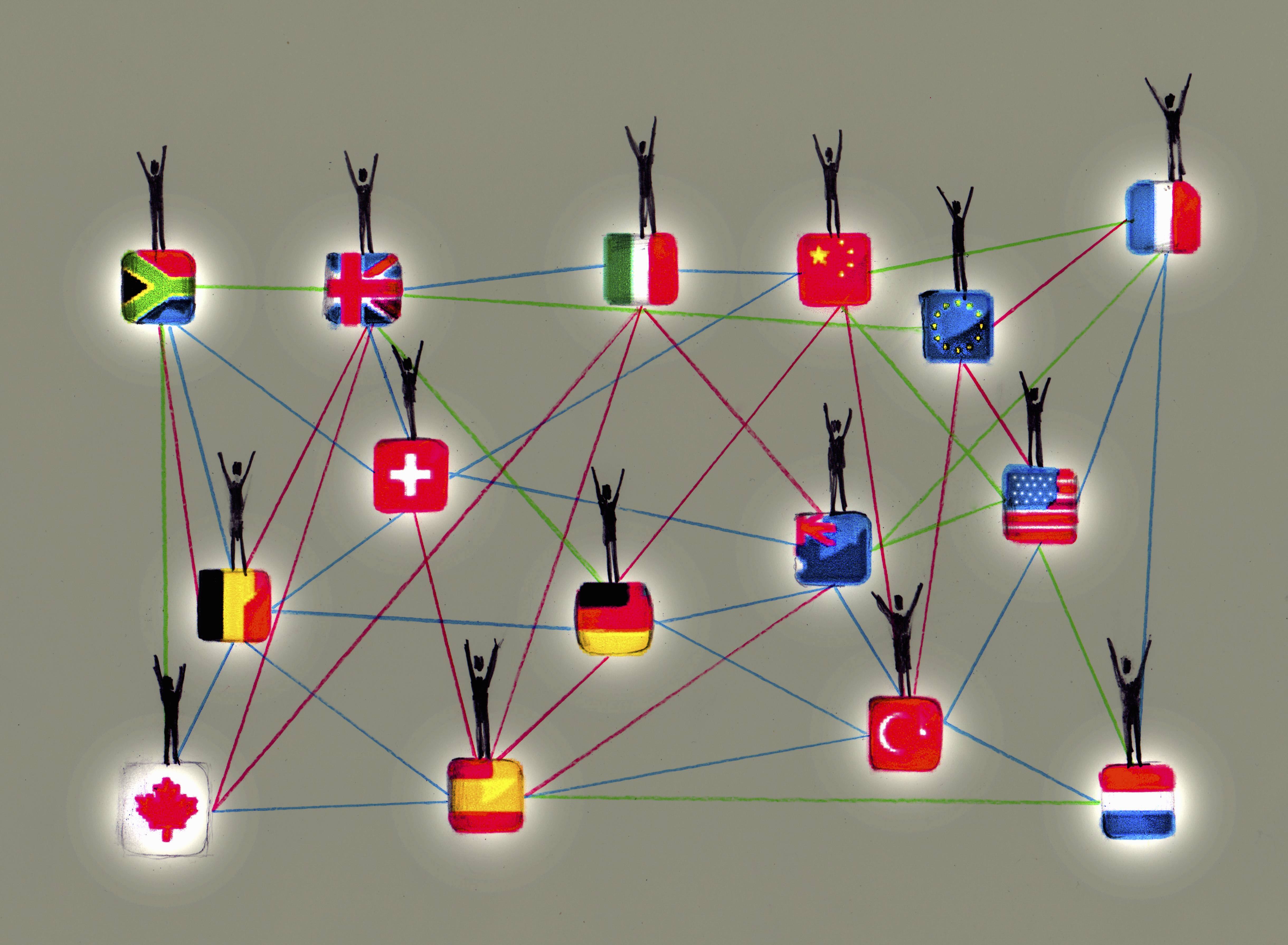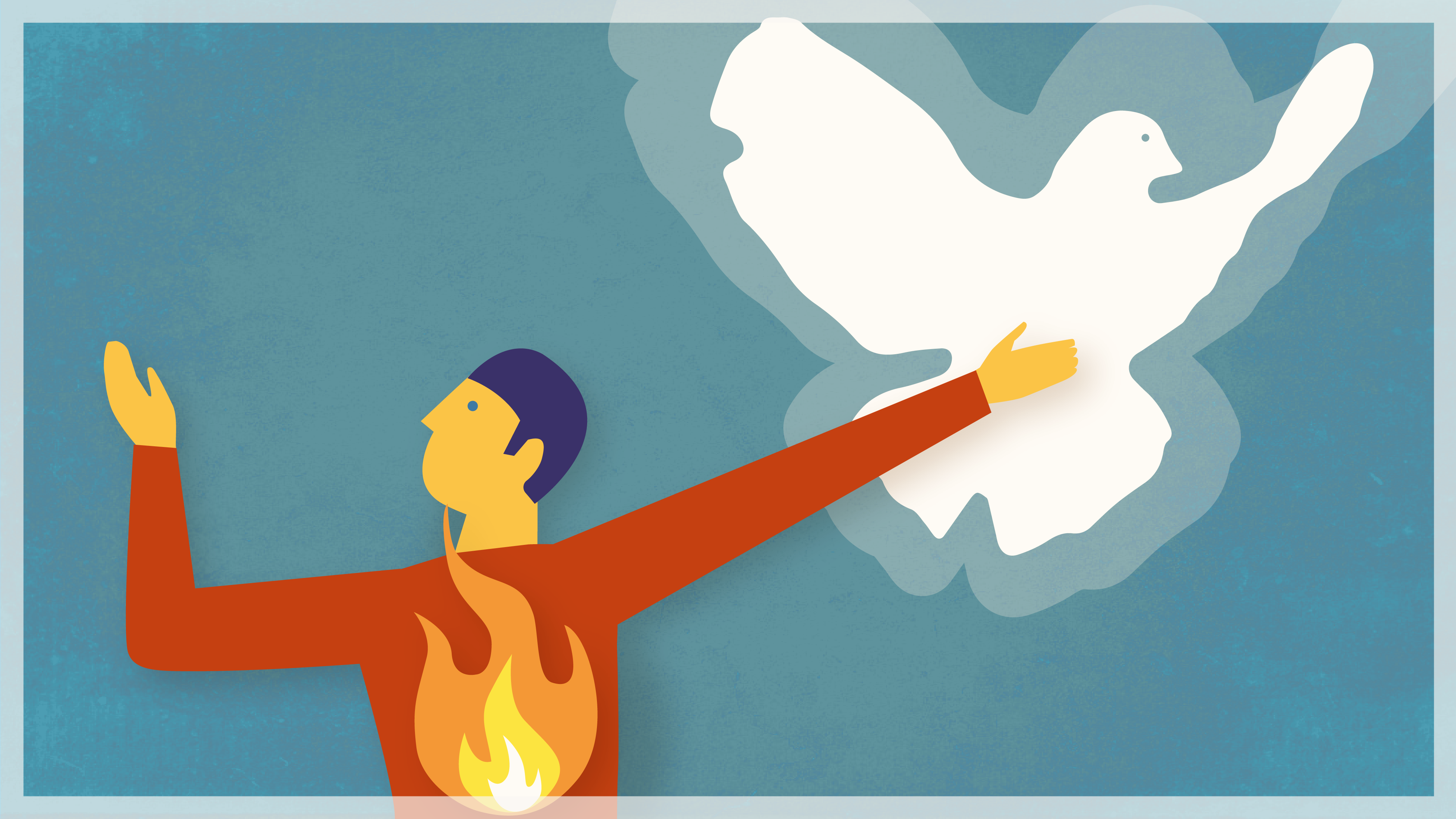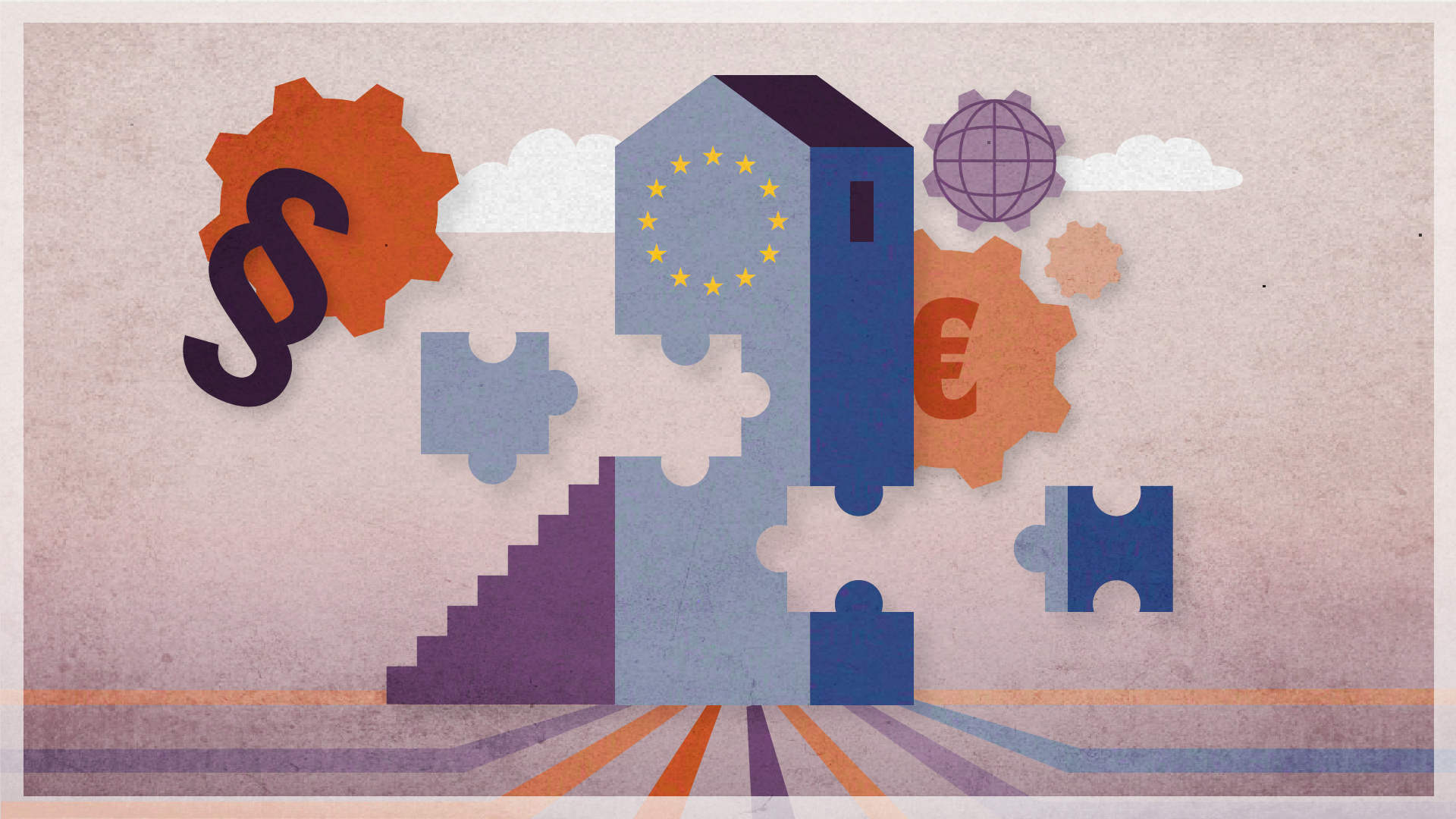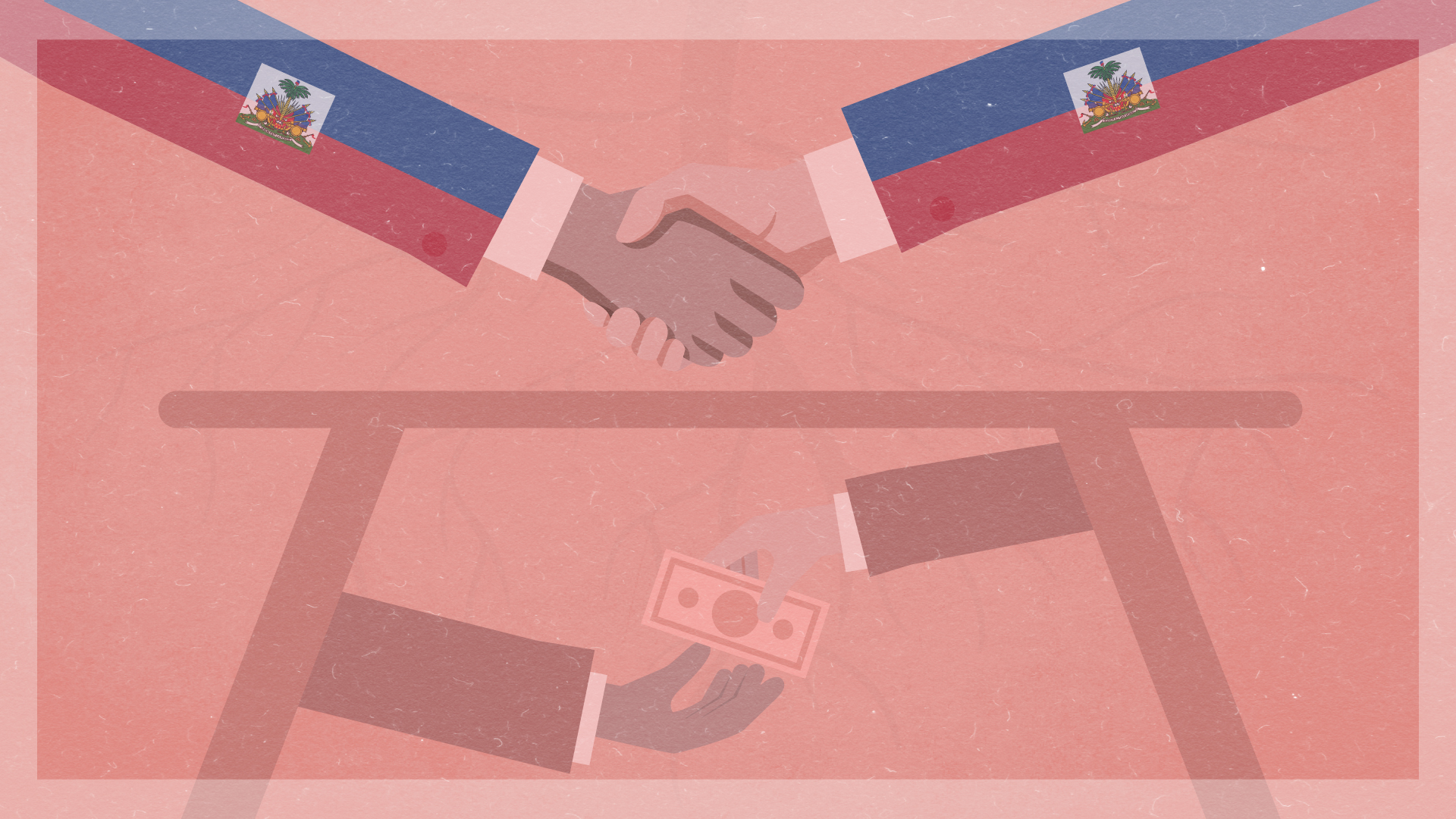Ambassador Kraus-Massé, you have been stationed in Haiti since July 2020, in one of the poorest countries in the world which is repeatedly shaken by severe natural disasters. What was your personal impression the first time you arrived in Haiti?
Jens Kraus-Massé: I was in Haiti for the first time in January 2020 on the occasion of the jazz festival in Port-au-Prince, which Germany has been involved in for the past 15 years. Haiti is a very exceptional country. Even the route from the airport to the embassy was unconventional for me, not least because I was being driven in an armoured vehicle with a bodyguard. It’s actually a distance of just seven kilometres, but it takes a good hour through the mountains. The roads are very narrow and winding, and we drove past houses with corrugated iron roofs, impressive villas, small groves and huge landfills on which goats play.
A year after you assumed office, the country’s president at that time, Jovenel Moïse, was murdered. But even before that, violent protests had been going on for months. Moïse had been governing by decree; presidential and parliamentary elections were postponed several times. What is the current political situation?
Jens Kraus-Massé: Haiti no longer has any functioning state institutions. There is neither a parliament with a quorum nor a president or a functioning Supreme Court because there is a lack of judges. So impunity is a very big problem. There is a transitional government, but it has little constitutional legitimacy. Furthermore, there is no electoral commission which could organise elections. Arguments have been going on for months about how such a commission should be staffed. And a constitutional court which is enshrined in the 1987 Constitution was never established.
The diplomatic attempt to square the circle
How should we picture your responsibilities as an ambassador under these conditions?
Jens Kraus-Massé: Discussions with representatives of the transitional government take place on a daily basis. Our goal is to hold elections as quickly as possible, based on a process managed by Haitians. However, that is not so easy, if only because of the security situation. There is a great deal of gang crime. In 2021, Haiti was the country with the highest rate of kidnapping worldwide. And this can happen to anyone at all, from a street-market trader to the head of a multinational company or a politician. Consequently, freedom of movement within the country is severely restricted.
After almost 30 years of dictatorship under Duvalier, free elections took place in 1986. A new constitution was adopted by referendum, laying the foundation for a democratic system. Why has it not been possible to establish a constitutional state since then?
You must realise that the police are not armed as well as the criminals who, in turn, control entire parts of the city.
The targets of the current United Nations Integrated Office in Haiti (BINUH*) include the promotion and strengthening of political stability and good governance, in which Germany is involved as it sent five police officers to train and advise the Haitian police. How do you evaluate the success of this mission to date?
Jens Kraus-Massé: It’s true that the German Federal Cabinet decided to send the police officers but, unfortunately, this has not yet happened. Those responsible in Haiti have not yet succeeded in defining their training and consultancy requirements. The police are neither materially nor personally equipped to determine such requirements at all. The demands are simply enormous. You must realise that the police are not armed as well as the criminals who, in turn, control entire parts of the city. And the number of police officers available to deal with kidnappings is lower than the number of people who are kidnapped.
What else is the German Federal Government doing to support Haiti in establishing constitutional structures?
Jens Kraus-Massé: Our interest lies in breaking up the thought structure which is shaped so strongly by the country’s political framework. We do this, for example, by holding a series of events on the topic of good governance, which we were first able to carry out in February 2021 during the German government’s lecture programme. The response was enormous. More than 30,000 people watched the event which, in a country with a population of 11 million, is very impressive. The topic on that occasion was how constitutional structures could be established after dictatorships. We discussed this, using Germany’s experience after the end of the Nazi dictatorship and the GDR as examples. Although a constitution was set up after the dictatorship in Haiti, it is not appropriate for the structures in this country because, among other things, important factors such as trust in the state and parliamentary experience are missing.
The online discussion was mainly aimed at an intellectual audience. What can events such as these actually achieve?
Jens Kraus-Massé: In particular, they can provide food for thought and open up new perspectives for solutions which, until now, may not have been considered. In this sense, it is important that they are there, because they provide a significant contribution to political education; they strengthen the dialogue with civil society and include those people who think about their country in one way or another
You mentioned the dialogue with civil society. What are the hopes and desires of Haitian civil society?
Jens Kraus-Massé: First of all, this is a rather vague concept in Haiti, because in principle it includes everyone who states they are a part of civil society, even if until yesterday they were a minister of state. Generally speaking, civil society is part of the elite and this is also due to the fact that education in Haiti is a matter of money. On the one hand, there are the few grass roots movements which would like to see a society which is more decentrally organised, with decisions taken closer to the ground and fewer discussions about national politics. The political civil society, on the other hand, would like to create functioning structures and fight corruption. The latter is certainly an enormous challenge, because the urge at all levels to access the state’s “honey pots” – and thus the possibility of corruptly obtaining funds by means of decisions – is huge.
Corruption is also one of the reasons why reconstruction after the severe earthquake of 2010 has been rather slow, despite billions of dollars in donations. But criticism is also aimed at international society. It is accused of assisting in financing these corrupt structures and establishing a kind of state within the state.


